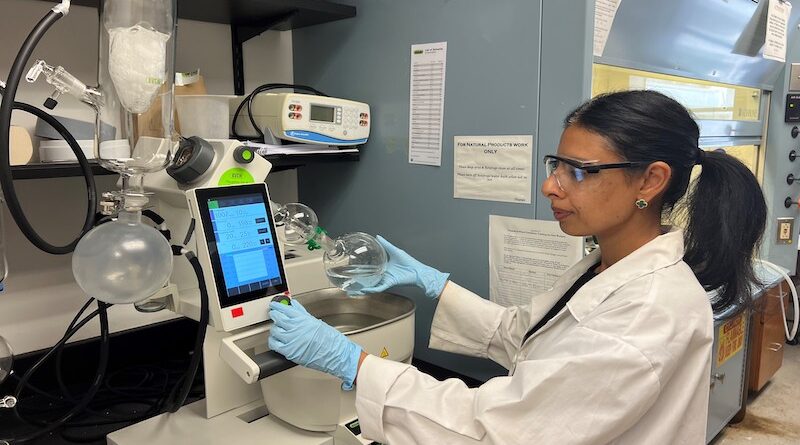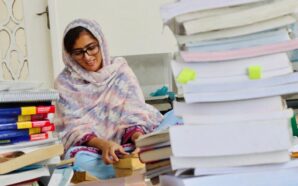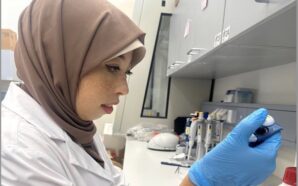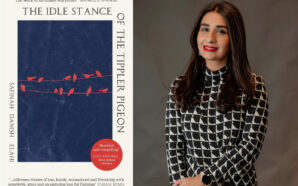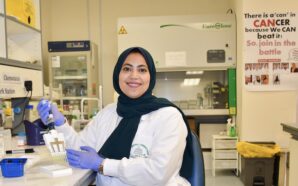The L’Oréal-UNESCO For Women in Science Middle East Regional Young Talents Program, in partnership with Khalifa University of Science and Technology, earlier celebrated a decade of empowering female scientists from the GCC in the fields of Life Sciences, Physical Sciences, Mathematics and Computer Science, who have blazed trails and are changing the landscape of scientific discovery in the region. Since its inception in the GCC in 2014, the program has made prodigious strides in nurturing and furthering the research endeavors of 51 female Arab scientists by awarding endowments totaling AED 3.4 million and supporting their professional growth. Among them are several scientists who have also received international recognition, with five going on to win the International Rising Talents Awards, and another four scientists receiving the L’Oréal-UNESCO For Women in Science International Award, as well. The regional program is part of the L’Oréal-UNESCO’s global For Women in Science initiative that has already recognized over 4,100 phenomenal researchers and more than 127 International Laureates from more than 110 countries since its inception in 1998. The ceremony to mark the 10th anniversary awarded 11 visionary researchers from the GCC underscoring their pivotal role in advancing knowledge, finding solutions to pressing global issues, and pushing the boundaries of scientific understanding. For the fifth year in a row, the program has been endorsed by H.E. Sarah Al Amiri, UAE Minister of State for Public Education and Advanced Technology and Chairperson of the UAE Space Agency.
Celebrating visionary women in the Arab region, Ananke interviews female scientists from the GCC participating L’Oréal-UNESCO For Women in Science Middle East Regional Young Talents Program. In conversation with Dr. Fatma H. Al-Awadhi (Kuwait) who has been recognized for her research on exploring the marine biodiversity in the gulf region for untapped therapeutic potential.
Tell us about yourself, your academic and professional journey.
I obtained my bachelor’s degree in pharmacy from Kuwait University, I worked as a pharmacist for about three years at Al-Amiri hospital-Kuwait. I realized early on that my interest lies in drug discovery and I was privileged to receive a scholarship from Kuwait University to pursue my graduate studies in marine natural products. Hence, I moved to Florida where I obtained my Master’s and Ph.D. from the University of Florida under the supervision of Prof. Hendrik Luesch. I started my independent career afterwards as an Assistant Professor in the College of Pharmacy – Kuwait University.
What was the inspiration behind your choice of study and vocation?
Natural products have been considered a validated source of therapeutic agents as approximately 50 percent of the small molecules marketed from 1981 up to 2019 were either derived from nature or inspired by natural product structures. My drive behind Marine Natural Products research in particular is that the marine environment is largely unexplored as the oceans cover about 70 percent of the Earth’s surface and enclose a huge biodiversity. The greater biodiversity in the marine environment reflects a greater opportunity for discoveries which will ultimately translate to potential targets for biomedical development.
What have been some of the most significant milestones in your professional journey?
At the end of my Ph.D. journey I was awarded the Kilmer Prize by the American Society of Pharmacognosy and American Pharmacists Association which recognizes outstanding student research in the area of natural products. During my independent career afterwards as an Assistant Professor I received Kuwait University’s Best Young Researcher Award in 2021 in the field of Basic and Applied Sciences which recognizes outstanding research efforts of faculty members at the Assistant Professor’s level. The latest milestone in my professional journey is being selected among the six winners chosen from a pool of scientists coming from Gulf countries to receive this year’s L’Oréal-UNESCO for Women in Science Middle East Regional Young Talents program grant. This award honors and empowers Arab female scientists from Gulf countries whose findings have contributed to the advancement of scientific knowledge.
What are some of the challenges that you have faced and how did you overcome them?
One of the main challenges I faced when starting my independent career was to establish my research in the field of marine natural products in Kuwait University as no one in the College of Pharmacy is working with marine samples. In order to avoid hampering my productivity through loss of time, I diverted my research a bit using the expertise I had in screening natural products using in vitro biological assays as well as in structure elucidation using NMR to collaborate with other researchers in the College of Science where I assisted in NMR spectroscopic structure determination of their pyrolysis substrates and products as well as screening of their synthetic compounds using relevant bioassays. My efforts culminated in publishing several papers while I was trying to overcome this challenge by finding collaborators within Kuwait University who can provide me with marine samples.
Do you believe gender has any part to play when it comes to challenges and milestones?
I believe women are more likely to face challenges which subsequently impact milestones. This is due to the additional responsibilities she has in the society particularly for women who are wives and mothers.
And most importantly, do you think gender can also play a part when it comes to science in the sense – how you work, analyze, formulate, develop and/or create? Why or why not?
According to UNESCO science report on the participation of women in STEM, only 33 percent of women are researchers and within the female student population in higher education globally, only around 30 percent choose STEM-related fields of study. Also, less than less than 15 percent of women in science have top academic positions. Regardless, I believe that provided a good environment for work and support, the gender should not play a part when it comes to work in science.
We would love to know more about your work, the potential impact and the promise it holds. (please be as detailed as you’d like/prefer to be)
My research interests lie at the interface of chemistry and biology, which focus on the discovery and characterization of novel natural products from marine organisms with an overreaching goal to discover and develop bioactive compounds for the treatment of human ailments. I’ve been mostly exploring marine cyanobacteria, also known as blue green algae. These are among the oldest organisms on earth with a fossil record of 3.3‒3.5 billion years. Thus, they have evolved to produce a plethora of structurally diverse secondary metabolites with a wide spectrum of activities, such as antibacterial, anti-inflammatory, and cytotoxic, which we are exploiting for drug discovery. My work involves sample collection, fractionation, and NMR spectroscopic structure elucidation, combined with biological profiling, target identification, and mechanism of action studies.
To date, fifteen marine natural products have been successfully marketed for various indications. This highlights the potential impact of my research and the promise these organisms hold for producing compounds with biomedical applications.
What does this recognition mean to you and how does it enable and empower you in your journey?
This recognition means a lot to me. Being selected as one of six winners from GCC for an international award is an honor, especially knowing how competitive it is. The award supports my research in this field and supports my professional growth. More importantly it increases my visibility in the region which I am hopeful that it will open new doors for me to collaborate with GCC researchers to further explore the untapped therapeutic potential of the Arabian Gulf’s marine organisms.
Any last words?
Thank you for the interview and I would also like to thank L’Oréal-UNESCO for Women in Science for recognizing my research.
This interview has been lightly edited for clarity.




